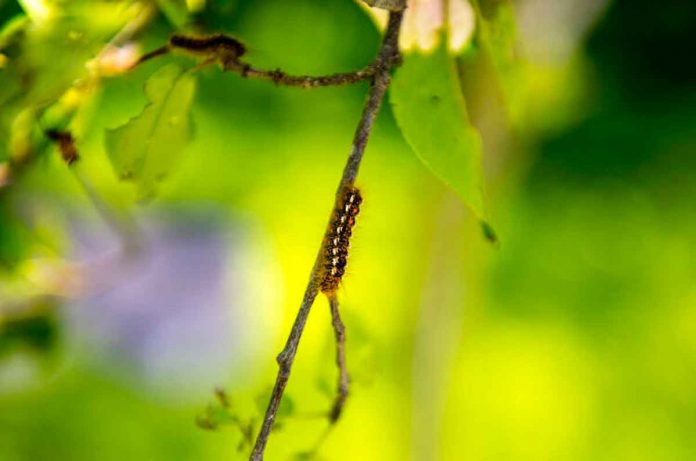A forest pest that bedevils Maine residents and tourists with hairs that cause an itchy rash appears to be spreading due to warming temperatures. This is according to a group of scientists.
The browntail moth is a scourge in America’s most forested state. There it defoliates trees and causes a rash in humans that resembles poison ivy. The hairs of the caterpillars were the subject of an outbreak in the state for about seven years. It can also cause respiratory trouble.
The growth and spread of the moth are tied to increasingly warm weather. Scientists wrote recently in the journal Environmental Entomology. Climate trends suggest upcoming years could be even worse.
Warmer fall temperatures are especially beneficial to the pesky bugs. It allows them to get fatter before they hibernate for the winter.
The browntail moth is native to Europe and neighboring countries in Asia and Africa. It was accidentally introduced in Massachusetts in the late 19th century. It is now found in coastal Maine and Cape Cod, Massachusetts.
The population of the moths has ebbed and flowed in the decades since it first arrived in Maine in 1904. But the outbreak has been steadily worsening in Maine in recent years. Entomologists said last year was the worst year for browntail moth infestations in state history. The bugs have been growing in both number and territory. The Maine Forest Service said they’ve spread into northern and western areas of the state in the last two years.
It’s another example of how climate change can aggravate pest problems and jeopardize human health. Climate change has already exacerbated problems with disease-causing pests such as mosquitoes and ticks. Maine communities have tried numerous strategies to try to slow the spread of the moth. It includes informing residents about how to safely remove their nests. The Maine Legislature is considering creating a special grant fund to pay for mitigation measures.

